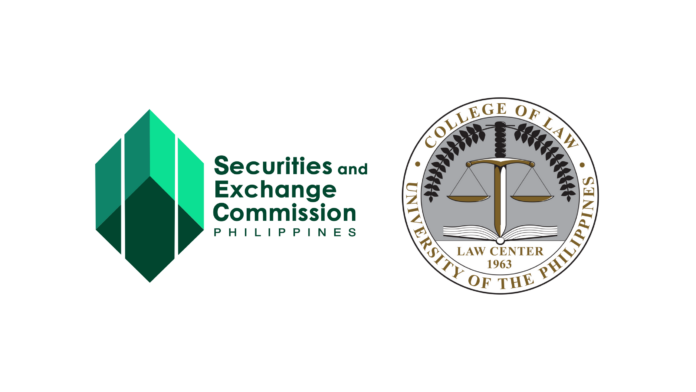The Securities and Exchange Commission and the University of the Philippines Law Center are reworking the decades-old policy framework that, while still effective, needs to be finetuned to better address the regulation of so-called financial technology companies in the country.
The partners on January 19 signed a memorandum of understanding (MOU) to further understand the evolving regulatory landscape surrounding fintech operations and formulate new policies that may be applied in the Philippines.
“At present, we at the SEC have been making use of laws and regulations tailored for traditional securities. Although these principles were laid down in the 1930s, they are considerably effective against cryptocurrency scams that are just run-of-the-mill Ponzi schemes,” SEC chairman Emilio B. Aquino said at the signing ceremonies.
The SEC has worked on the basis of Republic Act 8799, more known as the Securities Regulation Code, put in place on December 1, 2000, thus far proven effective even against those who take advantage of particular ambiguities in the framework.
“However, we strive to serve the Filipino the best way possible – that is why we are motivated to issue rules addressing cryptocurrencies and blockchain technology, specifically for the issuance of digital assets and the regulation of digital asset exchanges,” Aquino said.
UP College of Law Dean Edgardo Carlo L. Vistan II welcomed the collaboration.
“We commend the SEC for being proactive in addressing these challenges brought about by new technologies that enable more efficient ways of transacting business. Acting, especially, in defense of the investing public without hampering growth,” Vistan said.
The SEC has pursued initiatives addressing emerging technologies in the financial sector such as the Philippine Fintech Innovation Office in 2021 to understand and better regulate fintech in the Philippines.
The new office is the first point of contact for fintech companies applying for registration, or for existing fintech companies that have been operating or are introducing new fintech products, in navigating the regulatory landscape.
The SEC is currently drafting rules on digital asset exchanges to ensure these meet global standards on investor protection, market integrity, and transparency.







